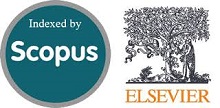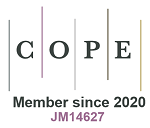Teamwork during the COVID-19 Pandemic
Abstract
Doi: 10.28991/esj-2021-SPER-01
Full Text: PDF
Keywords
References
Bockova, Katerina Hrazdilova. "A Project Team: A Team or Just a Group?." Eurasian Journal of Social Sciences 1, no. 2 (2013): 35-45.
Sridharan, Bhavani, and David Boud. “The Effects of Peer Judgements on Teamwork and Self-Assessment Ability in Collaborative Group Work.” Assessment & Evaluation in Higher Education 44, no. 6 (January 22, 2019): 894–909. doi:10.1080/02602938.2018.1545898.
Stutzer, Karen. “Generational Differences and Multigenerational Teamwork.” Critical Care Nurse 39, no. 1 (February 1, 2019): 78–81. doi:10.4037/ccn2019163.
Tang, Terence, Christine Heidebrecht, Andrea Coburn, Elizabeth Mansfield, Ellen Roberto, Emanuel Lucez, Morgan E. Lim, Robert Reid, and Sherman D. Quan. “Using an Electronic Tool to Improve Teamwork and Interprofessional Communication to Meet the Needs of Complex Hospitalized Patients: A Mixed Methods Study.” International Journal of Medical Informatics 127 (July 2019): 35–42. doi:10.1016/j.ijmedinf.2019.04.010.
Ammeter, Anthony P., and Janet M. Dukerich. “Leadership, Team Building, and Team Member Characteristics in High Performance Project Teams.” Engineering Management Journal 14, no. 4 (December 2002): 3–10. doi:10.1080/10429247.2002.11415178.
Pavel Šimák. “DELOITTE Česká republika. Trendy v oblasti lidského kapitálu 2019: v ČR i ve světě.” Available online: https://www2.deloitte.com/content/dam/Deloitte/cz/Documents/human-capital/2019-Trendy-v-oblasti-lidskeho-kapitalu-v-CR-i-ve-svete.pdf (accessed on January 2021).
Reed, April H., and Linda V. Knight. “Effect of a Virtual Project Team Environment on Communication-Related Project Risk.” International Journal of Project Management 28, no. 5 (July 2010): 422–427. doi:10.1016/j.ijproman.2009.08.002.
Bočková, Kateřina, Radka Vaníčková, and Daniela Hilčíková. "Team roles and styles of factual and relation communication and social interaction." Theory and Applications in the Knowledge Economy (2018): 329.
Zulch, Benita. “Leadership Communication in Project Management.” Procedia - Social and Behavioral Sciences 119 (March 2014): 172–181. doi:10.1016/j.sbspro.2014.03.021.
Modranský, Róbert, Kateřina Bočková, and Michal Hanák. “Project Manager and Stress in Coping with Demanding Situations in Automotive Industry.” Emerging Science Journal 4, no. 5 (October 1, 2020): 418–426. doi:10.28991/esj-2020-01241.
Barnová, S., S. Krásna, and G. Gabrhelová. "E-Mentoring, E-Tutoring, and E-Coaching in Learning Organizations.” EDULEARN19: 11th Annual International Conference on Education and New Learning Technologies, Palma de Mallorca, Spain, (2019): 6488-6498.
Liang, Hsiao-Yun, Hsi-An Shih, and Yun-Haw Chiang. “Team Diversity and Team Helping Behavior: The Mediating Roles of Team Cooperation and Team Cohesion.” European Management Journal 33, no. 1 (February 2015): 48–59. doi:10.1016/j.emj.2014.07.002.
Gibson, Cristina B. “Me and Us: Differential Relationships among Goal-Setting Training, Efficacy and Effectiveness at the Individual and Team Level.” Journal of Organizational Behavior 22, no. 7 (2001): 789–808. doi:10.1002/job.114.
Bakker, Arnold B., and Simon Albrecht. “Work Engagement: Current Trends.” Career Development International 23, no. 1 (February 19, 2018): 4–11. doi:10.1108/cdi-11-2017-0207.
Shuffler, Marissa L., Eduardo Salas, and Michael A. Rosen. “The Evolution and Maturation of Teams in Organizations: Convergent Trends in the New Dynamic Science of Teams.” Frontiers in Psychology 11 (September 4, 2020). doi:10.3389/fpsyg.2020.02128.
Johnson, Pamela R., Virginia L. Heimann, and Karen O’Neill. “The Wolf Pack: Team Dynamics for the 21st Century.” Journal of Workplace Learning 12, no. 4 (June 2000): 159–164. doi:10.1108/13665620010332813.
Krásna, Slávka, Geršicová, Zuzana and Viola Tamášová. „Vocational School Teachers ́ Job Satisfaction in Slovakia“. Karlsruhe, DE: Ste-Noc (2016).
Piwowar-Sulej, Katarzyna. "Bases of Remuneration Policy in Project-Oriented Organisation." Managing Transformation with Creativity, Corvinus University of Budapest, Budapest (2012): 431-446.
Armstrong, Michael, and Helen Murlis. Reward management: A handbook of remuneration strategy and practice. Kogan Page Publishers, (2007).
Kotter, John P. Vedení procesu změny: osm kroků úspěšné transformace podniku v turbulentní ekonomice. Praha: Management Press (2015).
Fair, Justin D., and Anne E. Kondo. “A University-Wide Approach to Introduce and Apply Teamwork and Leadership Skills.” Integrating Professional Skills into Undergraduate Chemistry Curricula (January 2020): 197–216. doi:10.1021/bk-2020-1365.ch011.
Fransen, Katrien, Desmond McEwan, and Mustafa Sarkar. “The Impact of Identity Leadership on Team Functioning and Well-Being in Team Sport: Is Psychological Safety the Missing Link?” Psychology of Sport and Exercise 51 (November 2020): 101763. doi:10.1016/j.psychsport.2020.101763.
Deutschland-Report. DELOITTE Germany. “Globale Human Capital Trendstudie 2019”. Available online: https://www2.deloitte.com/content/dam/Deloitte/de/Documents/human-capital/Deloitte-Human-Capital-Trendstudie-2019.pdf (accessed on January 2021).
DELOITTE Russian. “Тенденции в сфере управления персоналом в России-2019.” Available online: https://www2.deloitte.com/content/dam/Deloitte/ru/Documents/human-capital/russian/HC-Trends-2019-Russia-General-Report.pdf (accessed on January 2021).
Generational research-generations Y and Z - what is important for them at work. Available online: https://www.grafton.cz/cs/pro-firmy/nase-pruzkumy/generacni-pruzkum-generace-y-a-z-co-je-pro-ne-dulezite-v-praci (accessed on January 2021).
Kniffin, Kevin M., Jayanth Narayanan, Frederik Anseel, John Antonakis, Susan P. Ashford, Arnold B. Bakker, Peter Bamberger, et al. “COVID-19 and the Workplace: Implications, Issues, and Insights for Future Research and Action.” American Psychologist 76, no. 1 (January 2021): 63–77. doi:10.1037/amp0000716.
Spreitzer, Gretchen M., Lindsey Cameron, and Lyndon Garrett. “Alternative Work Arrangements: Two Images of the New World of Work.” Annual Review of Organizational Psychology and Organizational Behavior 4, no. 1 (March 21, 2017): 473–499. doi:10.1146/annurev-orgpsych-032516-113332.
Pejtersen, Jan H, Helene Feveile, Karl B Christensen, and Hermann Burr. “Sickness Absence Associated with Shared and Open-Plan Offices – a National Cross Sectional Questionnaire Survey.” Scandinavian Journal of Work, Environment & Health 37, no. 5 (April 28, 2011): 376–382. doi:10.5271/sjweh.3167.
Waizenegger, Lena, Brad McKenna, Wenjie Cai, and Taino Bendz. “An Affordance Perspective of Team Collaboration and Enforced Working from Home during COVID-19.” European Journal of Information Systems 29, no. 4 (July 3, 2020): 429–442. doi:10.1080/0960085x.2020.1800417.
Tannenbaum, Scott I, Allison M Traylor, Eric J Thomas, and Eduardo Salas. “Managing Teamwork in the Face of Pandemic: Evidence-Based Tips.” BMJ Quality & Safety 30, no. 1 (May 29, 2020): 59–63. doi:10.1136/bmjqs-2020-011447.
Nembhard, Ingrid M., Lawton R. Burns, and Stephen M. Shortell. "Responding to Covid-19: lessons from management research." NEJM Catalyst Innovations in Care Delivery 1, no. 2 (2020). doi:10.1056/CAT.20.0111.
Sidpra, Jai, Sahil Chhabda, Celia Gaier, Anoushka Alwis, Neetu Kumar, and Kshitij Mankad. “Virtual Multidisciplinary Team Meetings in the Age of COVID-19: An Effective and Pragmatic Alternative.” Quantitative Imaging in Medicine and Surgery 10, no. 6 (June 2020): 1204–1207. doi:10.21037/qims-20-638.
Zhang, Rui, Pedro Mestre, Carlos Serodio, Marilia Prada, and Wenjuan GAO. “Web-Based Teamwork: Distributed Software Development Course under Covid-19.” 2020 15th International Conference on Computer Science & Education (ICCSE) (August 2020). doi:10.1109/iccse49874.2020.9201661.
Bartsch, Silke, Ellen Weber, Marion Büttgen, and Ariana Huber. “Leadership Matters in Crisis-Induced Digital Transformation: How to Lead Service Employees Effectively During the COVID-19 Pandemic.” Journal of Service Management 32, no. 1 (August 12, 2020): 71–85. doi:10.1108/josm-05-2020-0160.
DOI: 10.28991/esj-2021-SPER-01
Refbacks
- There are currently no refbacks.
Copyright (c) 2021 Daska Porubcanova






